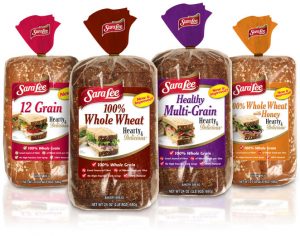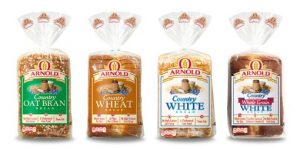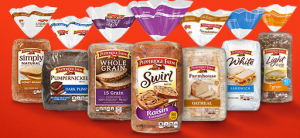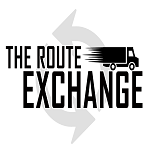How to Run a Bread Route Business
Bread route businesses are very popular in the independent route/distribution industry. Independent bread route opportunities are typically maintained by one individual who sells and delivers bread products for a particular bakery or manufacturer. The owner of the route purchases an exclusive distribution territory for products distributed by that company. For example, if you own a Bimbo bread route you may deliver products that fall under another brand but are being distributed by Bimbo. Bimbo agrees that they will not allow any other distributor to deliver products inside of your territory.

Requirements and Expectations
Running a bread route business does require you to manage a small business. You are considered an independent operator and are essentially reselling the bread products to your stores. The bread company will handle collections and issue payments to you based on the commission, but you will cover all of your own expenses. Prior route experience is typically not required if you can show the following traits and skills:
- Professional attitude and motivation to increase sales
- Willingness to work with your accounts, especially during sales and holiday seasons
- Understanding that the route should be treated like a business
- Ability to work as a team with your district, regional manager and your store managers
Day to Day Operation
Bread routes do require early morning hours and are somewhat seasonal in nature. As with most distribution routes, deliveries need to be made during grocery store receiving hours. Receiving hours fluctuate from location to location but are typically between 3am and 2pm. A common bread route schedule might be 5am to 1pm with Wednesday and Sunday off. The route owner starts their day by visiting a local warehouse facility and loading their order onto the truck. Orders are usually placed one week ahead of time and are relatively consistent besides sale items or seasonal increases. The owner then drives to each account, checks in their delivery, pulls out stale product, fills the shelf while rotating older bread to the front, and checks/fills displays as necessary. Some accounts may need service 5+ days per week while others need service less often. The schedule may change based on the time of year and what promotions are in effect that week. For example, bread route owners are very busy with hamburger and hot dog buns during the summer months and holidays like Memorial Day or Independence Day. Many route owners such as Pepperidge Farm and Arnold/Brownberry are extremely busy around Thanksgiving due to their stuffing product sales. If a route has very busy accounts or during holiday/seasonal surges, it may be necessary to hire a merchandiser or pull up/back stock worker that will go to your accounts and refill the shelves.
Account and Territory Growth
Major grocery store accounts (Wal-Mart, Target, Kroeger, Albertons, etc) are protected accounts that require service. These stores typically make up the largest portion of sales on the route. They have agreements in place with the bread companies and will be guaranteed on your route. Bread routes typically have anywhere from 3 to 15 stores in each territory. Smaller independent grocery stores, convenience stores, restaurants, schools and other accounts are typically serviced at the discretion of the route owner. These are the types of accounts that a bread route owner could add to increase the sales volume of their route. It is important to remember that the resale value of a route is calculated by using the average weekly sales number. By increasing weekly sales you are increasing both your upcoming paycheck plus the resale value and equity in the route.

Buying or Selling a Bread Route
Bread routes are offered by a wide variety of companies including Pepperidge Farm, Arnold/Bimbo/Brownberry, Sara Lee, Martin’s, Thomas’, etc. Most of these companies have similar setups and the route sales process is no different. Bread companies typically offer route financing. As a buyer you will need to have anywhere from 10-20% for a down payment on the route. The remainder can be financed through the companies banking partners.
Route values are calculated by using a simple multiplier system. Each company and market utilize a different multiplier and the weekly sales average of a route to determine it’s value. For example, a Pepperidge Farm bread route in the Chicago area may use a multiplier of 18. If the route is averaging $7,500 per week in sales then the asking price would be $135,000 ($7,500 x 18). Pepperidge Farm bread routes require a 15% down payment so the buyer would need to have $20,250 at the closing. Of course the buyer is also subject to credit review and an interview process which can effect their approval. It is important to remember that the multipliers vary from company to company and city to city…the same route in New York City might be using a 25x multiplier. It is based entirely on market trends and historical sales numbers in that area.

The Route Exchange
If you are interested in buying or selling a bread route business and have any questions please feel free to contact us at any time. We have no upfront fess and are truly experts in the route sales industry. We have operated bread routes in the past so we are familiar with the day to day requirements as well. Our service was established to make the route buying and selling process easier. We qualify all of our leads from both a business and financial stand point. We will save you the headaches and wasted time associated with both buying/selling routes and make sure the process gets done quickly and efficiently.
